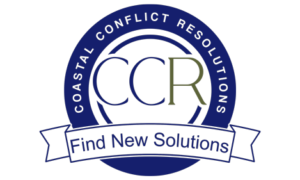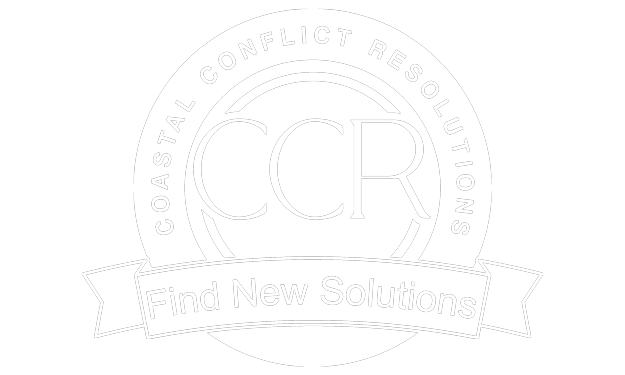How a Mediator Can Help Resolve Family Issues
Family dynamics can be complex and, at times, challenging. Conflicts within a family can arise from various sources and, if not addressed properly, can lead to lasting damage to relationships. In such scenarios, a mediator can play a crucial role in helping families navigate through their issues and find amicable solutions. At Coastal Conflict Mediation, we specialize in offering mediation services tailored to address and resolve family conflicts in a constructive and empathetic manner.
 What Causes Family Issues?
What Causes Family Issues?
Family issues can stem from a myriad of factors, each unique to the individuals involved. Understanding the root causes of these conflicts is the first step towards resolution. Some common causes of family issues include:
1. Communication Breakdown
Effective communication is the backbone of healthy relationships. Misunderstandings, lack of communication, or poor communication habits can lead to conflicts and feelings of resentment among family members.
2. Financial Stress
Money is often a significant source of stress within families. Financial difficulties, disagreements over spending, or disparities in financial contributions can create tension and conflict.
3. Parenting Styles and Decisions
Differences in parenting approaches can lead to disagreements between parents or between parents and children. These conflicts can be about discipline, education, or lifestyle choices for the children.
4. Life Changes
Major life changes such as divorce, remarriage, the birth of a child, or the death of a loved one can disrupt family harmony and lead to conflicts as family members adjust to new roles and circumstances.
5. Interpersonal Relationships
Issues such as sibling rivalry, jealousy, or conflicts with extended family members can strain family relationships. Differences in values, beliefs, or lifestyles can also contribute to conflicts.
How a Mediator Can Help Resolve Family Issues
Mediation is a voluntary process where an impartial third party, the mediator, facilitates communication and negotiation between disputing parties. The goal is to help them reach a mutually acceptable agreement. Here’s how a mediator can assist in resolving family issues:
1. Facilitating Open Communication
One of the primary roles of a mediator is to facilitate open and honest communication between family members. The mediator creates a safe and neutral environment where everyone can express their feelings and concerns without fear of judgment or retaliation.
2. Identifying Underlying Issues
A mediator helps identify the underlying issues causing the conflict. By asking probing questions and encouraging dialogue, the mediator uncovers the root causes of the problem, which may not be immediately apparent to the parties involved.
3. Promoting Understanding and Empathy
Mediation encourages family members to understand each other’s perspectives and emotions. The mediator helps parties see the situation from different viewpoints, fostering empathy and reducing hostility.
4. Generating Solutions
The mediator assists the family in brainstorming and evaluating potential solutions to their issues. By focusing on interests rather than positions, the mediator helps the parties find creative and mutually beneficial solutions.
5. Facilitating Negotiation and Agreement
Once potential solutions are identified, the mediator guides the family through the negotiation process. The mediator ensures that the discussions remain productive and that the agreements reached are fair and practical for all parties involved.
Steps to Resolve Family Issues with a Mediator
Resolving family issues through mediation involves several steps. Here’s a typical process that families can expect when working with a mediator at Coastal Conflict Mediation:
1. Initial Consultation
The process begins with an initial consultation where the mediator meets with the family members to discuss the issues at hand. The mediator explains the mediation process, answers any questions, and assesses whether mediation is a suitable approach for the family’s situation.
2. Agreement to Mediate
If the family decides to proceed with mediation, all parties sign an agreement to mediate. This document outlines the rules of the mediation process and the confidentiality of the discussions.
3. Gathering Information
The mediator gathers relevant information from the family members to understand the context and dynamics of the conflict. This may involve individual meetings with each party or reviewing pertinent documents.
4. Joint Mediation Sessions
During joint mediation sessions, the mediator facilitates discussions between the family members. The mediator ensures that everyone has an opportunity to speak and that the conversations remain respectful and constructive.
5. Developing Solutions
The mediator assists the family in exploring and developing potential solutions to their issues. This collaborative approach encourages the parties to work together towards a resolution.
6. Reaching an Agreement
Once the family agrees on a solution, the mediator helps them draft a written agreement. This agreement outlines the terms of the resolution and the commitments of each party. The mediator ensures that the agreement is clear, fair, and feasible.
7. Follow-Up
After the mediation process, the mediator may conduct follow-up sessions to ensure that the agreement is being implemented effectively and to address any new issues that may arise.
Contact Coastal Conflict Mediation
If your family is experiencing conflicts that seem insurmountable, mediation can be a powerful tool to help you find resolution. At Coastal Conflict Mediation, we are dedicated to helping families navigate their disputes with compassion and expertise. Our professional mediators are skilled in facilitating discussions and guiding families towards mutually acceptable solutions.
To learn more about our services or to schedule an initial consultation, please contact us at: (843) 273-0029




